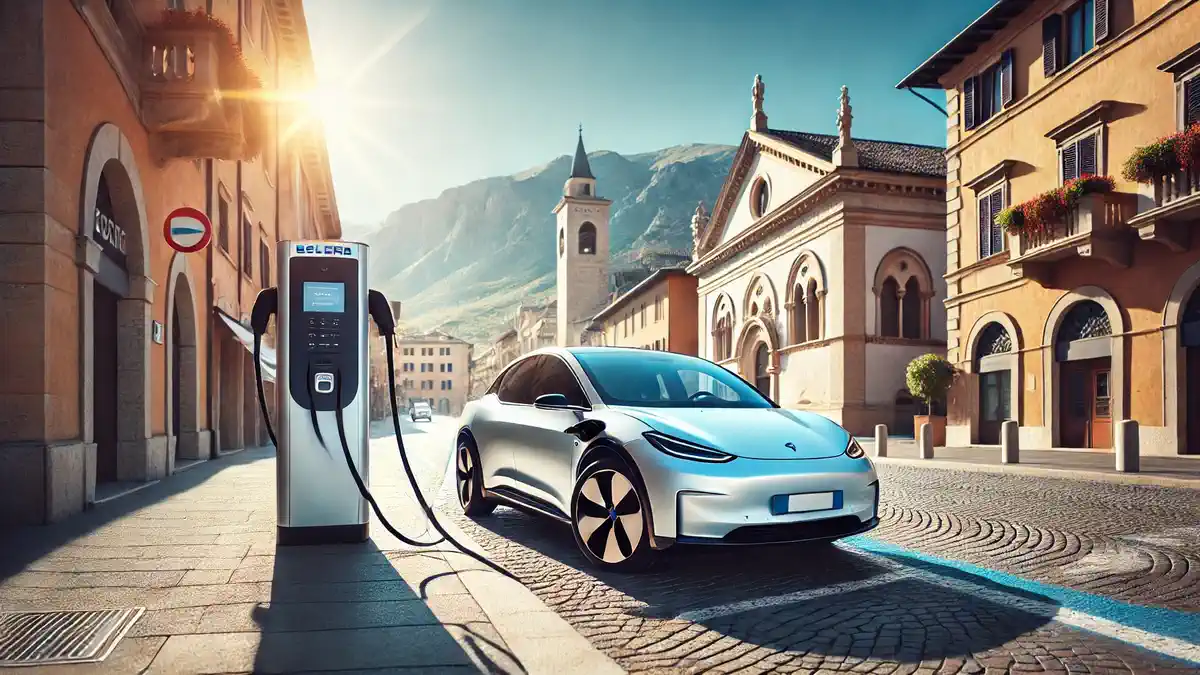Understanding the Need for Sustainable Transportation
The rapid evolution of environmental concerns has highlighted the pressing need for sustainable transportation solutions. In recent years, climate change has emerged as a formidable challenge, exacerbated by the carbon emissions from traditional combustion engine vehicles. These vehicles not only contribute significantly to greenhouse gas emissions but also adversely affect air quality, harming both human health and the ecosystem. As cities continue to grow and traffic congestion becomes rampant, the negative impacts associated with conventional automobiles are becoming increasingly evident.
Research indicates that transportation is a leading source of global emissions, accounting for approximately 24% of energy-related carbon dioxide emissions. This figure underscores the urgency for consumers and policymakers alike to rethink transportation strategies. The detrimental effects of personal vehicles equipped with internal combustion engines extend beyond greenhouse gas emissions. They lead to the release of harmful pollutants such as nitrogen oxides and particulate matter, which can trigger respiratory diseases and other health complications within urban populations.
As awareness of these issues grows, there is a palpable shift towards more eco-friendly alternatives, including electric vehicles (EVs), hybrid models, and public transportation systems. These innovative transportation methods not only reduce carbon footprints but also offer the promise of improved air quality and a decrease in noise pollution. Therefore, it is crucial for consumers to consider the environmental implications of their vehicle choices. By opting for sustainable transportation, individuals contribute to a longer-term vision of mobility that prioritizes ecological sustainability and public health.
In conclusion, the transition to more sustainable vehicle options is not merely beneficial but essential. The collective effort of consumers, manufacturers, and governments in prioritizing eco-friendly transportation will pave the way for a healthier planet and a more vibrant future. This is why understanding and embracing sustainable transportation is imperative in today’s world.
Exploring Eco-Friendly Vehicle Options
The growing concern over environmental issues has propelled the automotive industry towards innovative solutions effective in reducing carbon footprints. Among the most popular eco-friendly vehicle options are electric vehicles (EVs), hybrids, and hydrogen fuel cell cars. Each of these alternatives offers unique benefits and drawbacks, which consumers should consider when making a choice.
Electric vehicles (EVs) are becoming increasingly popular due to their zero emissions while in operation. They are powered entirely by electricity, which can be sourced from renewable energies, enhancing their sustainability profile. Nevertheless, one downside is the limited range on a single charge compared to conventional gasoline vehicles, though this is gradually improving with advancements in battery technology. For instance, the Tesla Model 3 exemplifies a leading EV, boasting impressive range and performance metrics while promoting a lower environmental impact.
Hybrid vehicles represent another viable option, combining traditional internal combustion engines with electric propulsion. This dual system allows hybrids to maintain fuel efficiency while reducing emissions relative to their conventional counterparts. However, hybrids can still contribute to greenhouse gas emissions, albeit at a reduced level. A popular example is the Toyota Prius, known for its efficient design and minimal carbon output.
Hydrogen fuel cell cars, though still in the developmental stage, represent a promising future for eco-friendly transportation. These vehicles generate electricity from hydrogen and oxygen, emitting only water vapor. While they offer considerable efficiency and range similar to traditional vehicles, the infrastructure for hydrogen refueling is limited. Brands like Honda with the Clarity and Toyota’s Mirai are spearheading this innovative approach, showcasing the potential for hydrogen as a fuel source.
Technological advancements in all these areas are making eco-friendly vehicles more accessible and appealing to the average consumer. As manufacturers continue to invest in research and development, the options for sustainable transportation will only expand, encouraging greater adoption of vehicles that support a healthier planet.
The Financial Benefits of Choosing Efficient Vehicles
Investing in less harmful and more efficient vehicles represents a forward-thinking financial decision for both individuals and families. One of the primary advantages of these vehicles is the substantial reduction in fuel costs. Efficient cars, particularly hybrids and electric vehicles (EVs), consume significantly less fuel compared to their traditional counterparts. By opting for a vehicle that prioritizes fuel efficiency, owners can expect to see notable savings at the gas pump, as these cars convert energy into usable mileage more effectively.
Another financial incentive to consider is the availability of government tax rebates and incentives. Various governments around the world have implemented programs aimed at encouraging the adoption of sustainable vehicles. These incentives can dramatically reduce the upfront costs of purchasing eco-friendly models, making them more accessible to the average consumer. Tax deductions, rebates, and grants can lower the overall cost of ownership, thereby enhancing the appeal of these environmentally conscious choices.
Moreover, efficient vehicles tend to incur lower maintenance and insurance costs. With simpler mechanics and fewer moving parts, many hybrid and electric vehicles result in fewer breakdowns and, consequently, reduced repair bills. Additionally, certain insurance companies offer discounts for insuring eco-friendly vehicles, recognizing their lower risk profile due to their decrease in emissions and fuel consumption. This combination of factors contributes to a more budget-friendly ownership experience.
From a broader perspective, investing in sustainable transportation can lead to greater economic stability at the community level. Properties in areas known for eco-friendly practices often see an increase in value as demand for green living rises. Households that embrace efficient vehicles contribute to a tradition of sustainability, which can enhance neighborhood attractiveness and, in turn, property values. Ultimately, choosing an efficient vehicle is not just beneficial for personal finances; it also supports long-term economic viability in communities committed to sustainability.
Future Trends in the Automotive Industry
The automotive industry is undergoing a transformative evolution, influenced by a variety of emerging trends that prioritize sustainability, efficiency, and technological advancement. One of the most significant trends is the ongoing advancement in battery technology. As manufacturers strive to enhance battery performance, improvements such as increased energy density, faster charging capabilities, and longer life cycles are becoming increasingly common. These developments not only contribute to longer-range electric vehicles (EVs), but also help reduce the environmental impact associated with battery production and disposal.
Another crucial trend reshaping the automotive landscape is the rise of autonomous vehicles. As self-driving technology matures, major automotive companies are investing heavily in research and development. Enhanced safety features, reduced traffic congestion, and lower emissions are potential benefits of widespread adoption of this innovative technology. The integration of artificial intelligence and machine learning will likely transform how vehicles perceive their surroundings, making autonomous driving a viable option for many consumers in the coming years.
The expansion of electric charging infrastructure also plays a pivotal role in shaping the industry’s future. Governments and private enterprises are collaborating to build an extensive network of charging stations, making EV ownership more convenient and accessible. This investment not only supports the growth of electric vehicles but also assists consumers in making the transition towards sustainable transportation options, knowing that charging will be widely available.
Consumer awareness and demand are vital factors driving these trends. As individuals become more informed about the environmental consequences of traditional vehicles, there is a marked shift towards selecting options that mitigate these impacts. This increased consumer interest in sustainability is propelling innovation within the automotive industry, leading to a more efficient and less harmful sector. Ultimately, the convergence of these trends heralds a bright future for both the automotive industry and environmentally-conscious consumers alike.


No responses yet